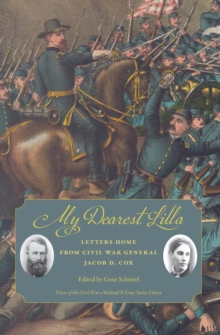
The Letters of General Richard S. Ewell : Stonewall's Successor Hardback
Edited by Donald C. Pfanz
Part of the Voices of the Civil War series
Hardback
Description
Richard S. Ewell was one of only six lieutenant generals to serve in Lee's Army of Northern Virginia, and of those he was but one of two-the other being Stonewall Jackson, his predecessor as commander of the Second Corps-to have left behind a sizeable body of correspondence.
Forty-nine of Ewell's letters were published in 1939.
This new volume, drawing on more recently available material and scrupulously annotated by Ewell biographer Donald Pfanz, offers a much larger collection of the general's missives: 173 personal letters, 7 official letters, 4 battle narratives, and 2 memoranda of incidents that took place during the Civil War. The book covers the full range of Ewell's career: his days at West Point, his posting on the western frontier, his role in the Mexican War, his Civil War service, and, finally, his postwar years managing farms in Tennessee and Mississippi.
Some historians have judged Ewell harshly, particularly for his failure to capture Cemetery Hill on the first day at Gettysburg, but Pfanz contends that Ewell was in fact a brilliant combat general whose overall record, which included victories at the battles of Cross Keys, Second Winchester, and Fort Harrison, was one of which any commanding officer could be proud. Although irritable and often critical of others, Ewell's correspondence shows him to have been generous toward subordinates, modest regarding his own accomplishments, and upright in both his professional and personal relationships.
His letters to family and friends are a mixture of wry humour and uncommon sense.
No one who reads them will view this important general in quite the same way again.
Information
-
Out of Stock - We are unable to provide an estimated availability date for this product
- Format:Hardback
- Pages:504 pages
- Publisher:University of Tennessee Press
- Publication Date:30/11/2012
- Category:
- ISBN:9781572338739
Information
-
Out of Stock - We are unable to provide an estimated availability date for this product
- Format:Hardback
- Pages:504 pages
- Publisher:University of Tennessee Press
- Publication Date:30/11/2012
- Category:
- ISBN:9781572338739










